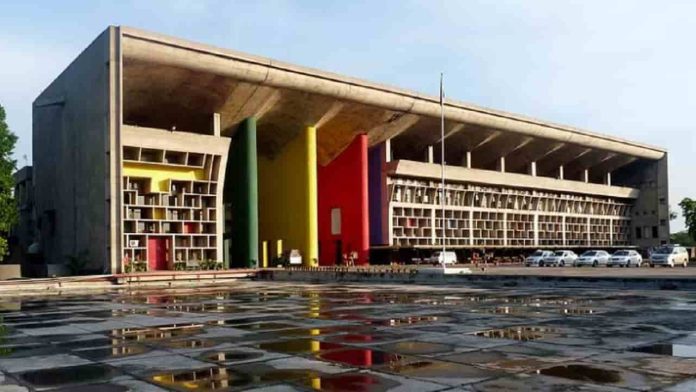Communal clashes, often driven by religious, cultural, or socio-political differences, can have devastating consequences for the affected communities. So much so that courts have to step in to stop the mayhem. Following clashes between Hindus and Muslims in Nuh, where more than 140 people were arrested and 108 taken into preventive detention, more than 50 panchayats in districts like Rewari, Jhajjar and Mahendergarh passed resolutions prohibiting any Muslims from entering their villages. A letter by the gram panchayat of Saidpur stated: “In view of the communal violence in Nuh, the panchayat as well as villagers have taken a decision that ‘mischievous elements’ or ‘anyone from the Muslim community’ will not be allowed to conduct any trade or other activities in Saidpur.”
Devender Singh Babli, Minister of Development and Panchayats of Haryana, Jananayak Janata Party, promised the public that those who had issued orders for the boycott of Muslims would face harsh punishment. He said: “I am aware of this issue. In some places, people have passed such resolutions. But I have given clear instructions to the district administrations of all such places that this is not acceptable under the law, and if any person is involved in issuing such orders, strict action will be taken against them.”
However, days after the incident, hundreds of buildings were torn down in Nuh by bulldozers as it was claimed that they were illegally constructed. When the matter reached the Punjab and Haryana High Court, they questioned the state whether it was conducting an exercise of ethnic cleansing by targeting buildings that were primarily owned by Muslims.
The High Court further stated: “Apparently, without any demolition orders and notices, the law-and-order problem is being used as a ruse to bring down buildings without following the procedure established by law.” A zila parishad member of Nuh informed the Court that about 300 families from over three dozen villages had relocated to their homes to Rajasthan and other states after the illegal demolition.
Meanwhile, Hindu organisations in Nuh and neighbouring areas were seen threatening local businesses to fire any Muslim employees working for them or face boycott. Villagers were scrutinising vendors before allowing them to enter the villages. Numerous landlords took refuge among the Muslim community’s tenants.
In a rally by the Bajrang Dal, hate speeches against the Muslim community were reportedly heard and Section 153A of the Indian Penal Code, 1860, which prohibits the promotion of enmity between different groups on the ground of religion, race, place of birth, residence and language was violated. “There are hundreds of Muslim men working in Gurugram as carpenters, barbers, vegetable vendors, mechanics, and cab drivers, and we have always supported them. But now we will ensure they don’t get any support from anywhere as they are responsible for disrupting peace in the city. Muslims should not be allowed to live or work in the city. We appeal to the people of the city not to rent out apartments or slums to them,” was one speech.
The Constitution enshrines the fundamental right to life and personal liberty, which communal violence violates. Discriminating and boycotting the Muslim community directly violates the fundamental right to equality (Article 14) and prohibits discrimination based on religion, race, caste, sex, or place of birth (Article 15). These constitutional guarantees form the bedrock for ensuring that citizens are protected from hate-based diktats (a harsh punitive decree imposed on defeated nation/community/political party) during communal clashes. Issuing diktats against Muslims during communal clashes violates Articles 25-28, which guarantee the right to religious freedom, ensuring every citizen has the right to freely profess, practice, and propagate their religion. The Nuh violence sparked a debate about the fine line between freedom of expression and hate speech. While the Constitution guarantees the right to freedom of speech and expression (Article 19), this right is not absolute.
A Public Interest Litigation has been filed in the Supreme Court by a journalist, apprising it that over 27 rallies were organised in various states after the Nuh violence. In order to ensure peace in Delhi-NCR, the Supreme Court directed the centre to maintain harmony and tranquility in the wake of communal clashes in Nuh, Gurugram, and neighbouring areas. The bench, comprising Justice Sanjiv Khanna and Justice SV Bhati, ordered the deployment of additional police or paramilitary force and installation of CCTV cameras in the prone areas of violence. Further, the bench suggested forming a committee headed by the Haryana police chief to examine the complaints of hate speech.
The Court said: “We hope and trust that the state governments, including the police authorities, will ensure that there are no hate speeches against any community and there is no violence or damage to properties. Wherever required, adequate police force or paramilitary forces will be deployed.”
Haryana Chief Minister Manohar Lal Khattar while assuring the public said: “The losses will be assessed, and people shall be compensated accordingly. There is already an Act in Haryana as per which rioters will have to pay for the losses caused to the government and the people. In the Nuh case also, all those accused found guilty of the damage shall be made to pay for the losses.” He also said that people who suffered losses can fill up forms in the E-Kshatipurti portal (Haryana Government’s portal aims to provide compensation for damages caused by natural calamities) till August 18, 2023. He said that all the movable and immovable property will be assessed, and compensation granted accordingly.
It is essential for law enforcement agencies to act swiftly, ensuring that those responsible for such actions are held accountable under the relevant legal provisions, thereby sending a clear message that such behaviour will not be tolerated in a democratic and secular society.
—By Ritika Gaur and India Legal Bureau


